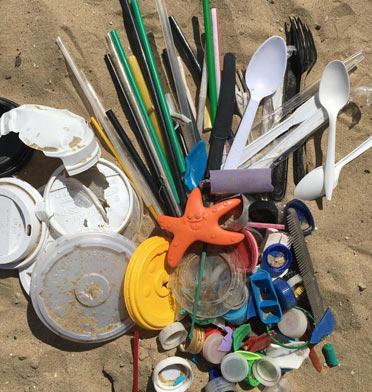Our waterways and oceans are literally choking in plastic pollution. Plastic has now been found deep in our oceans, in arctic ice, in rainwater and even in drinking water. Scientists are still conducting research to understand the extent of its impacts on humans, but we already know it has devastating impacts on marine wildlife, who can become entangled in or ingest plastic debris, causing suffocation, starvation, and drowning. Plastics are estimated to take up to hundreds of years to fully decompose, though some of them break down much quicker into tiny microplastics (<5 mm), which in turn end up in the seafood we eat.

Channelkeeper works to stem the tide of plastic pollution to our oceans through broad array of advocacy, monitoring outreach and education initiatives. We have led the charge, in partnership with the Community Environmental Council, to convince municipalities across our region to adopt ordinances that ban the distribution of plastic grocery bags, Styrofoam takeout containers, and plastic straws, stirrers and cutlery.
Channelkeeper also supports an initiative spearheaded by Ablitt’s Fine Cleaners to recycle film plastic, which Santa Barbara’s waste collection and recycling provider is currently unable to recycle. Ablitt’s offers their business for film plastic collection events for the community. They then bale the film plastic and send it to manufacturers that repurpose it into pellets used for decking and other household materials. Click here to sign up to attend film plastic collection events.
Through our youth and public education and outreach efforts, Channelkeeper educates our community about the impacts of single-use plastics on our oceans, wildlife and human health and the ease and importance of transitioning to reusable alternatives. We also host frequent beach and creek clean-ups to prevent plastic and other trash from escaping to the ocean.
